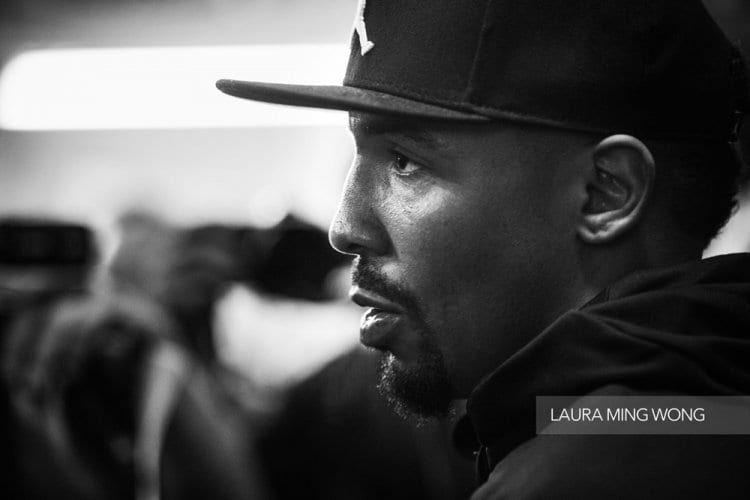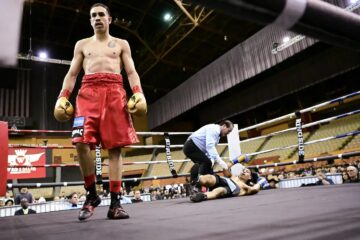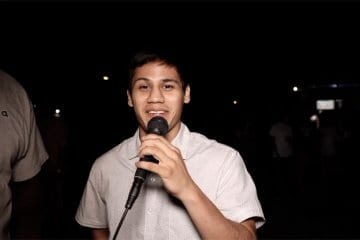Without Ward: Andre Ward’s Legendary Career Remembered
Andre “S.O.G.” Ward suddenly announced his retirement on the morning of September 21st to the shock of many who had no clue it was near.
Ward, was seemingly the living embodiment of the Frank Sinatra song “My Way”, going about the professional and amateur ranks in his own manner. I feel I had a unique perspective on his career since I transitioned from befuddled youth looking for direction seeing someone near my hometown win, a gold medal to wanting to cover boxing based on proxy after seeing Andre Ward destroy one of the scariest punchers at the time, Edison Miranda in Oakland, CA.
Ward spent most of his tenure undefeated as a boxer, a rare feat amongst any combat athlete let alone a boxer. In fact, his last loss was when he was a teenager and when asked about it, he would tell you that fight should’ve gone his way and that it was an awful scorecard [EDITOR’S NOTE: those are my words, not Ward’s by the way]
Ward and his coach and longtime mentor, Virgil Hunter, not just figured out perfection in the ring, they were shrewd and calculating. When Ward won the 2004 Gold Medal at the Olympics, fought at light heavyweight based on the competition lacking the skillsets needed to beat him.
When Ward returned state-side he seemingly was shunned by major promoters despite being a gold medalist and signed with Goossen-Tutor Promotions, a major promoter, but not one of the major two at the time, that being Top Rank Inc and Golden Boy Promotions. A theme of Ward’s career that was magnified towards the end was a fans lack of enthusiasm for him (to a degree) and certain pundits targeting him, mocking and belittling his winning style.
When Ward entered the “Super Six” tournament in 2009, he was the biggest underdog of the whole event. On top of that, he fought the odds-on favorite to win the event, Mikkel Kesler in the first round. Ward, who fought Kessler in Oakland, CA, his hometown, put on a clinic outboxing Kessler, who never appeared the same after the bout as he won the bout when a clash of head forced the bout to go to the cards.
Ward would go on to defeated Allan Green, Sakio Bika and Arthur Abraham before defeating Carl Froch in one of the last bouts in Atlantic City, New Jersey every housed. In the finals of the Super Six, Ward fought Carl Froch. Ward used a left hook to constantly attack Froch who naively kept his lead hand low against Ward. Ward was one of the most cerebral fighters of all-time and his ability to hone in on what you were not good at was second to none.
Then came the Chad Dawson fight, the first major boxing match I ever was allowed to cover, professionally. At the time, Chad Dawson was viewed as a top 5 pound-for-pound fighter and willingly stated he would come down in weight to fight Ward after defeating Bernard Hopkins in their rematch. That seemingly was lost in translation as Ward, a superhero to the Oakland youth, who walked by the weigh-ins excited that the hometown hero made weight in a downtown Oakland district exclaiming murmurs of joy looking at the grandstand Ward stood on an hour prior. After destroying Dawson Ward was being portrayed by some as a manipulative fighter who drained Dawson and stopped him based on circumstance and not skill. Ward’s win against a top 5 pound-for-pound fighter was completely discredited as soon as the bell had rung for the final time.
Ward may never win awards on his endearing kindness, but that was never his job. The fact that Ward was so quickly discredited after defying the odds three times, the Olympics, winning the “Super Six” and then Chad Dawson, seemed to further his discontent to the media. I never got to know Andre Ward before the big fights, but you can tell the pundits, who mocked the majority of his career, certainly ruined it for a good portion of us as he seemingly never really wanted writers around that he didn’t know and had a Marshawn Lynch-ian view of sports writers.
Ward would then enter into a bitter contract dispute with his promoter Dan Goossen in which Ward penned a retirement letter in private and was content to not fight again. Ward, who is an Oakland native, has always been about the message at large and in many ways was standing up for worker’s rights and this instance, the fighters, but the message was drowned out once again by media members discrediting Ward for not fighting. Ward seemingly sat out a good portion of his prime based off the principle that he felt wronged.
Ward would return to the ring against Edwin Rodriguez in a rather forgettable fight that seemingly came and went. The fight saw Rodriguez miss weight, numerous fouls called throughout and a lonely venue in Southern California that was unreceptive to Ward, who was from the rival region of the state. Not long after the bout, Dan Goossen passed away and Ward signed with Roc Nation Sports, which would signal the final stanza of his career.
In the final act of Ward’s career, he would take a tune-up fight against UK slugger Paul Smith whom he would stop in 9 rounds, simply dismantle a top 5 light heavyweight in Sullivan Barrera and then take a rather bizarre fight with seemingly unknown Alexander Brand. These fights all lead to the two fights that would define Andre Ward’s existence, his two bouts with Sergey Kovalev.
Kovalev was everything Ward wasn’t and was all at the same time. Kovalev would say outlandish things and was not very calculated when giving interviews, but spoke with malice. You felt that Ward had some of those same intents at times, but was very adept at hiding or concealing them, Kovalev was straight-forward, he wished to implement pain on others in the ring, so much so that he killed a man from damages suffered in the ring.
Media members who had disliked Ward prior whether they had taken money from the promoter Ward had sued, genuinely didn’t like or just sheepish followed along in disdain for his in-ring actions intensified their hatred during the build-up to the fight as Ward’s frame of being a career super middleweight was called into question-fighting one of the best light heavyweights in the modern era.
Ward would engage in a modern classic with Sergey Kovalev in a bout that was so close it was hard to tell who won and saw Ward have to pick himself off the canvas to win and many debating the validity of his win. The lack of respect for Ward’s win would spawn a rematch that was initially titled “No Excuses”, a reference to Kovalev’s many tales of misery as he played the role of a victim of a decision loss that he was not fond of. On top of that, HBO the network that put on the pay-per-view fight on, threw Ward under the bus essentially leading the average viewer to believe he was gifted his win.
The rematch which happened earlier this year saw Ward stop Kovalev. Kovalev, who appeared more distraught and emotional in the build-up to the bout, simply was no longer the same fighter. After the bout, it seemed the end was near for Ward as he quieted naysayers despite the fact that they still used the excuse of a low blow ending the fight, despite the fact that a shot to Kovalev’s head essentially started his fall from grace.
Ward was the blue collar fighter from Oakland, Ca, well, Hayward, CA, but Oakland was his adoptive hometown. He was unapologetic in his beliefs and knew his level of greatness. Ward was not always the easiest to work with, but it was also overstated his demeanor in the negative by the media. The more I covered Ward, the more I saw him as a great sports star like that of a Stephen Curry or Kobe Bryant, he was not interested in solely boxing, he was larger than life and he was tactical in his responses as well as demanded greatness from those around him.
Ward carried Bay Area boxing for years bringing the first world title fight to Oakland, CA after many decades with the Kessler bout and brought both HBO Boxing and Showtime Sports to the undervalued region, all while defending his hometown in the process. Ward’s want and need to fight at home gave him many labels, but mostly unfair since a lot of fighters fight at or move to a major media market, but since the market is massive in Los Angeles, New York or Las Vegas, no one shines a light on their hometown fights.
Ward’s absence will be missed as it is the ending of an era for me it is the true end of fandom. From this point forward, I will not have been a fan of boxer prior to covering the sport and that feels odd. Ward essentially gave me my break by bringing big cards to the region I live in which forced me to up my ethical standards, output, and quality. Ward also always gave me the time of day during media events, even when my outlets were less than others. Without Ward, things in the Bay Area seem a little out of place.
We now no longer have a fixed presence in the boxing culture at large as all of the homegrown Bay Area fighters are seemingly on the verge of going from prospect to contender and ways away from being a pay-per-view fighter. I told a friend today that someone will fill the void of Andre Ward, but honestly, I am not sure. Ward did a lot and a lot of it wasn’t appreciated, much like his boxing style. It seems that once he is truly gone, that is when we will really understand how much Ward meant to the Bay Area.




